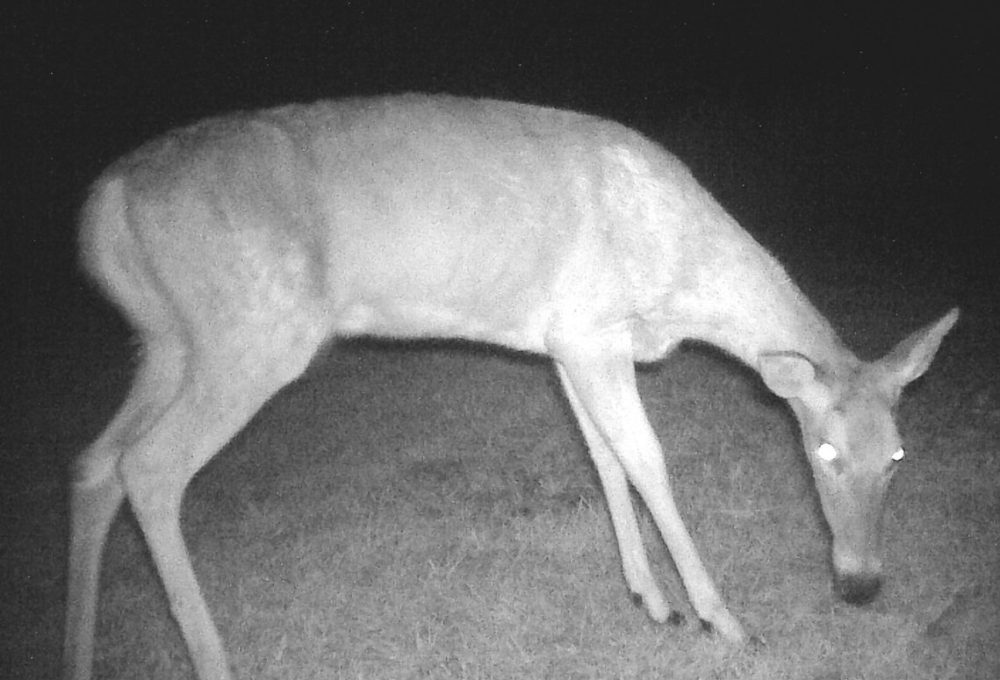Texas Game Wardens Uncover Illegal White-Tailed Deer Smuggling Operation
February 7, 2025 – AUSTIN – Texas Game Wardens have concluded an investigation that led to the arrest and conviction of two individuals involved in illegally moving captive white-tailed deer.
A South Texas deer breeder and his business partner were caught attempting to smuggle seven deer from a licensed deer breeding facility in East Texas through Montgomery County to Brazoria and Duval counties, where they intended to illegally release the deer into the wild on private property.
The case unfolded when a Montgomery County Game Warden conducted a traffic stop and discovered the illegally possessed deer being transported without required documentation or identification. Further investigation uncovered significant violations of Texas Parks and Wildlife Department (TPWD) statutes and regulations, as well as criminal and traffic violations. Both individuals were arrested and booked into Montgomery County Jail.
The deer breeder faced 41 total charges: one traffic code violation, 11 penal code violations and 29 deer breeder violations under the Texas Administrative Code and Parks and Wildlife Code. He pleaded guilty to three penal code violations and 29 deer breeder violations. His business partner was charged with two penal code violations and 28 deer breeder violations, of which he was convicted.
Both men were convicted on multiple counts of violations committed with the intent to circumvent disease monitoring and testing requirements. Violations included failure to conduct ante-mortem chronic wasting disease (CWD) testing, failure to obtain valid transfer permits, removal of breeder deer without required identification and illegal possession of live game animals. Combined, they were convicted of a total of 57 deer breeder violations, one alcohol and two dangerous drug violations. They received a total $12,060 in fines.
This case underscores the commitment of TPWD and Texas Game Wardens to protecting the state’s natural resources and upholding wildlife regulations. The possession and movement of deer are regulated, among other reasons, to mitigate the spread of diseases like CWD and to ensure the health of both captive and free-ranging wildlife populations. Anytime a white-tailed deer leaves a breeding facility, it must be uniquely and permanently identified, no matter its age. Breeder deer that have not been properly identified or have had their identification hidden or illegally changed or removed are commonly referred to as “ghost deer.”
“Flagrant violations, such as intentionally transferring deer without identifiers, hinder Texas’ ability to identify the source of a deer in the event of a disease detection,” said Col. Ronald VanderRoest, TPWD Law Enforcement Director. “This creates the potential for negative impacts to the health of both captive and free ranging deer populations, the deer breeder industry, landowners, hunters and Texas’ outdoor and rural based economies, where white-tailed deer hunting has a $9.6 billion annual economic contribution.”
“This case perfectly illustrates the dedication and hard work of Texas Game Wardens by not only uncovering the defendant’s illegal operation but also highlighting the importance of protecting our state’s natural resources,” said Ann Kuykendall, Montgomery County assistant district attorney. “This prosecution sends a clear message: those who knowingly violate these laws will be held accountable.”
With no available site for return, their unknown disease status and the unacceptable risks associated with their release into the wild, the “ghost deer” in this case were euthanized in accordance with protocols related to disease testing. The type of activity the suspects were participating in led TPWD to believe a heightened risk of disease exposure existed. Fortunately, the epidemiological investigation revealed no detection of CWD.
About Texas Game Wardens
Texas Game Wardens, within the Law Enforcement Division of the Texas Parks and Wildlife Department, are responsible for enforcing laws related to the conservation and management of natural resources and public safety through community-based law enforcement. Their mission is to provide hunting, fishing and outdoor recreation opportunities for the use and enjoyment of present and future generations. Additionally, they play a crucial role in search and rescue operations during natural disasters, exemplifying their commitment to protecting both the environment and the people of Texas.






